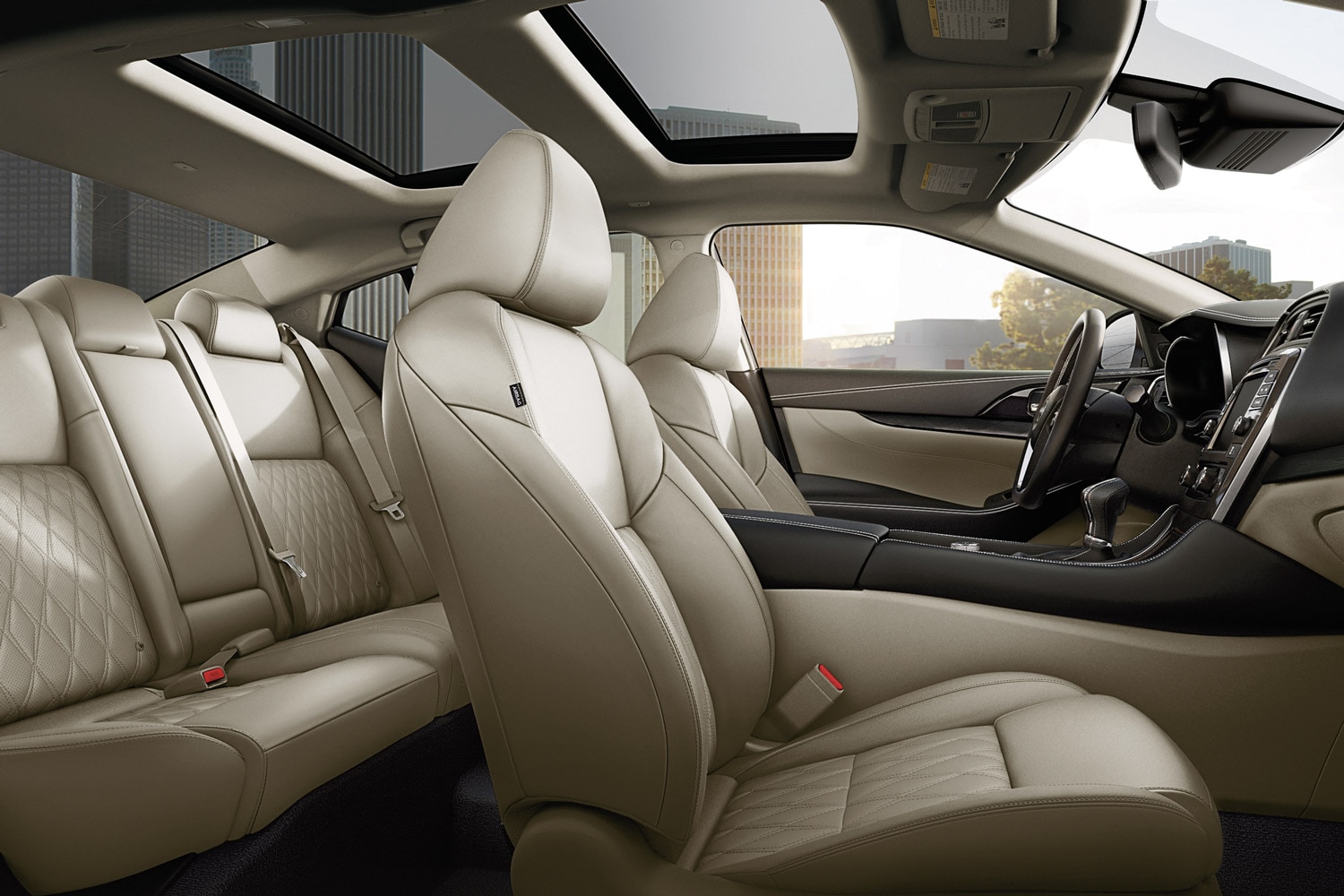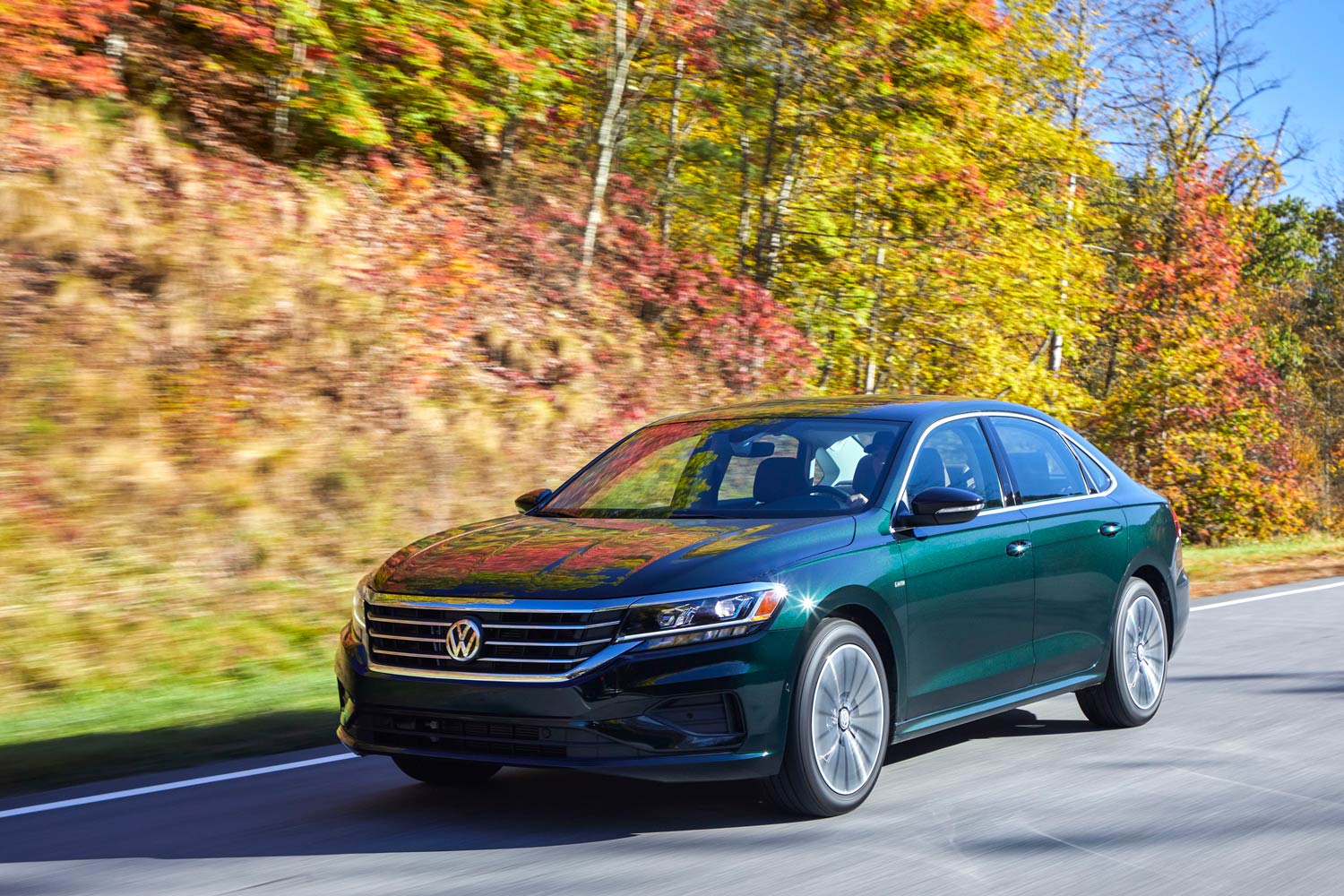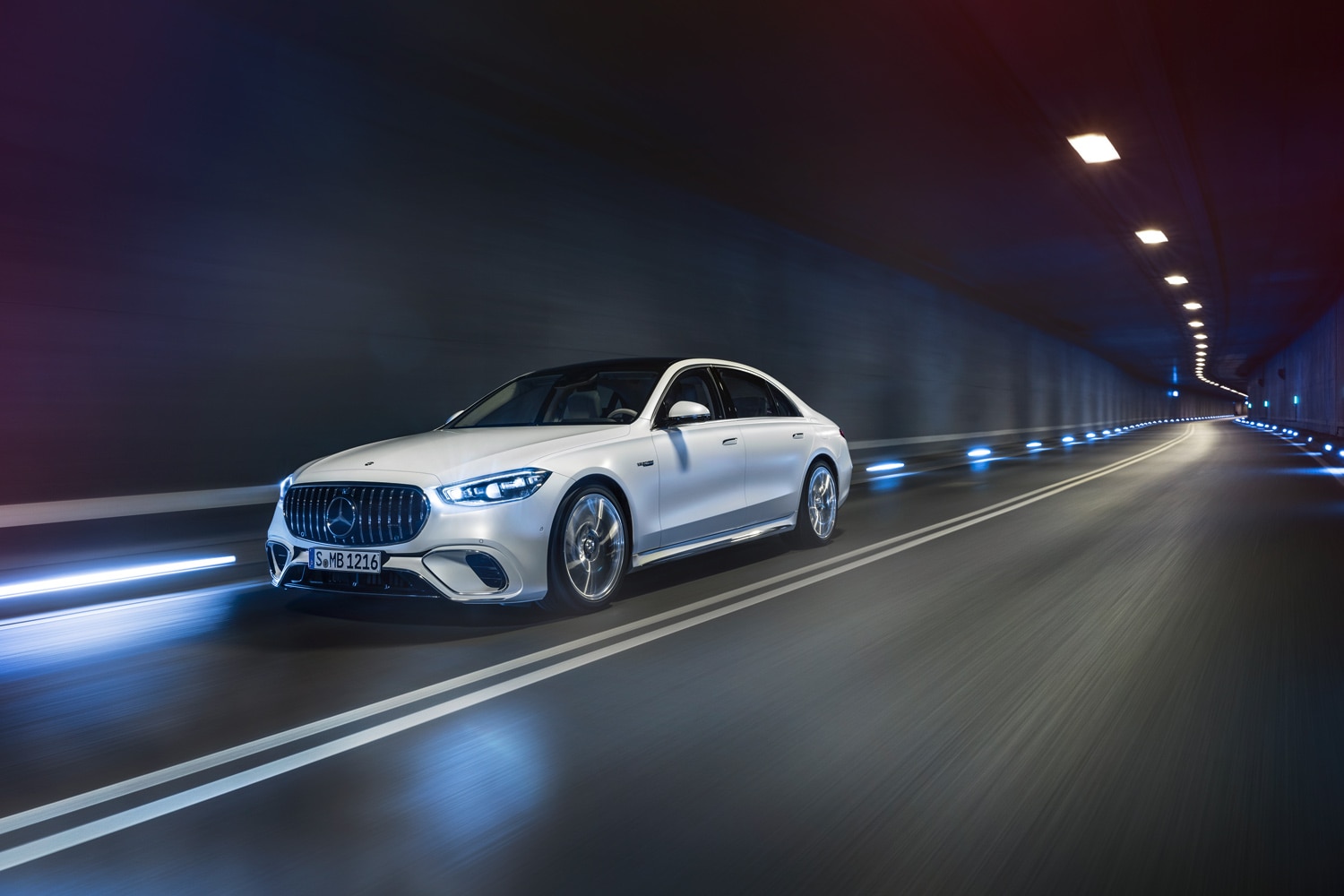Are We Nearing the End of Sedans?
Sedans have lost substantial market share to SUVs, but several factors could level the playing field.
Capital One
The average sedan has morphed over the last couple years into the automotive equivalent of the VHS tape in the 2000s. These four-door, low-riding family haulers are often unhip, difficult to sell, and appear to be last in line for a slice of the development budget. While it looks as if the sedan era is over, a number of factors — such as the chip shortage and electrification — are unexpectedly propping up certain models.
 Nissan
Nissan
What's going on with sedans?
The sedan landscape looks increasingly barren. Volkswagen ended production of the U.S.-market Passat earlier in 2022, leaving the Jetta as its only sedan. Nissan’s Maxima will retire in 2023 after eight generations and more than 40 years. Ford no longer sells a three-box car in the states, and Chevrolet’s sedan lineup is down to the Malibu, which will reportedly get the ax in the next year or two.
The main reason why these cars are vanishing from product lineups is that fewer and fewer want them anymore. In 2011, Malibu sales approached 205,000, besting the Equinox’s tally by some 11,500 units. Fast-forward to 2019 — before the pandemic and supply-chain issues shuttered production — and that annual count had fallen to 132,000. It dropped even further (to 103,000 units) the following year and positively tanked in 2021 to a mere 39,000. Even the ancient Express van outsold the Malibu last year. It’s a similar story for the Maxima. In 2021, U.S. annual sales fell by 9.3 percent. Meanwhile, Nissan Kicks and Rogue sales increased by 40.9 and 25.3 percent, respectively. It doesn’t take a genius to see where the investment dollars should go.
According to Ed Kim with automotive marketing research firm AutoPacific, the market’s shift away from sedans and toward crossovers and SUVs has been in the making for decades. “Ever since the 1990s, following the introduction of the wildly popular Ford Explorer, consumers have gravitated to SUVs’ characteristics,” he said. “These include a higher seating position, better visibility, more cargo space and interior flexibility, and easier ingress and egress.” Kim added that although fuel economy was a big reason consumers would not consider a larger vehicle, that economy gap has largely disappeared.
Interestingly, luxury models such as the Mercedes-Benz S-Class and BMW 7 Series have weathered this storm better than more economical sedans. Nothing suggests that these models will be canceled in coming years to make room for SUVs. Cadillac notably steered clear of the SUV segment when it designed its new flagship EV sedan, the Celestiq.
 Volkswagen
Volkswagen
Short-term reprieve for sedans
Although the numbers aren’t good, it’s too early to say farewell to the sedan. Buyers clearly prefer the space, style, and high seating position of crossovers, SUVs, and pickups, but market volatility has upset the natural order of things. The ongoing chip shortage has made some of the most popular vehicles difficult to find in parts of the country. Buyers in need of a new car took what they could get and gave slow-selling models a boost. Inflation has also caused some people to tighten their car budget and look for a more fuel-efficient ride. That's good news for sedans, which tend to cost less and sometimes return better gas mileage than comparable crossovers. Take, for example, the front-wheel-drive Toyota Camry and RAV4. They ride on the same platform and, in base form, employ the same 203-hp 2.5-liter four-cylinder. But that Camry rates 29-32 mpg to the RAV4's 30 mpg, according to the EPA, and it costs about $1,900 less. While RAV4s still outsold Camrys in 2021, the crossover’s sales dropped by 5.3 percent compared to 2020, while Camry sales rose by 6.6 percent.
 Mercedes-Benz
Mercedes-Benz
Is there a future for sedans?
Analysts disagree about how long the chip shortage will last, but most say it’s not a permanent problem. Sooner or later, supply will catch up with demand and potentially mean the demise of the sedan. Then again, the shift toward electrification could help keep sedans afloat.
A sedan is often lighter and more aerodynamic than a comparable crossover, so it tends to offer more driving range. Mercedes-Benz builds the all-electric EQS 580 sedan and EQS 580 SUV on the same platform. The vehicles are mechanically similar — each using a pair of electric motors (one per axle) linked to a 108-kWh lithium-ion battery pack — and yet the sedan weighs 5,888 pounds and returns up to 340 miles of driving range while the 6,228-pound SUV needs to charge after 305 miles.
“As range anxiety remains one of the biggest reasons consumers reject EVs,” Kim of AutoPacific said, “the additional range that a sedan provides could be compelling to some.” The sedan is also less expensive and quicker to 60 mph than its high-riding sibling, which will surely sway some buyers.
Kim doesn’t think that electrifying sedans will cause them to shoot to the top of the sales chart. “There is some possibility that sedans could claw back a little bit of market share in the coming years,” he said, “due to factors associated with the shift to full battery electrification. But because SUVs possess traits that are mutually exclusive from sedans, such as the coveted high seating position, it is unlikely that sedans will return to their former glory anytime soon.”
Written by humans.
Edited by humans.
 Ronan Glon
Ronan GlonRonan Glon is an American journalist and automotive historian based in France. He enjoys working on old cars and spending time outdoors seeking out his next project car.
Related articles
View more related articles